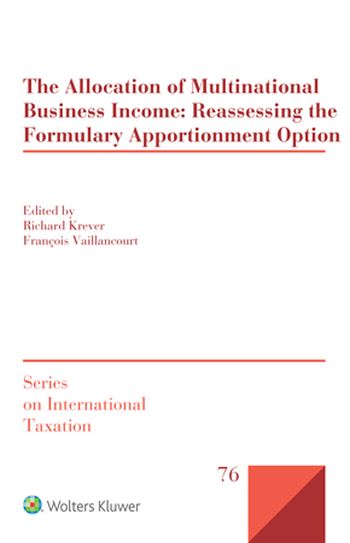
The Allocation of Multinational Business Income is a global guide to formula apportionment providing a comprehensive understanding of aspects of the formulary apportionment option. Although an arm’s length methodology continues to prevail in international taxation policy, it has long been replaced by the formulary apportionment method at the subnational level in a few federal countries. Its use is planned for international profit allocation as an element of the European Union’s CCCTB proposals. In this timely book, a knowledgeable group of contributors from Australia, Canada, the United Kingdom and the United States address this actively debated topic, in respect of both its technical aspects and its promise as a global response to the avoidance, distortions, and unfairness of current allocation systems.
What’s in this book:
Drawing on a wealth of literature considering formula apportionment in the international sphere and considering decades of experience with the system in the states and provinces of the United States and Canada, the contributors explicate and examine such pertinent issues as the following:
How this will help you:
Having a realistic appreciation of the prospects for adoption of formulary apportionment in Europe and globally, this state of the art summary of history, current practice, proposals and prospects in the ongoing debate over arm’s length versus formulary apportionment methodologies will be welcomed by practitioners, policymakers, and academics concerned with international taxation, all of whom will gain an understanding of the case put forward by proponents for adoption of formula apportionment in Europe and globally and the counterarguments they face. Readers will acquire a better understanding of the implications of formulary apportionment and its central role in the current debate about the future of international tax rules.